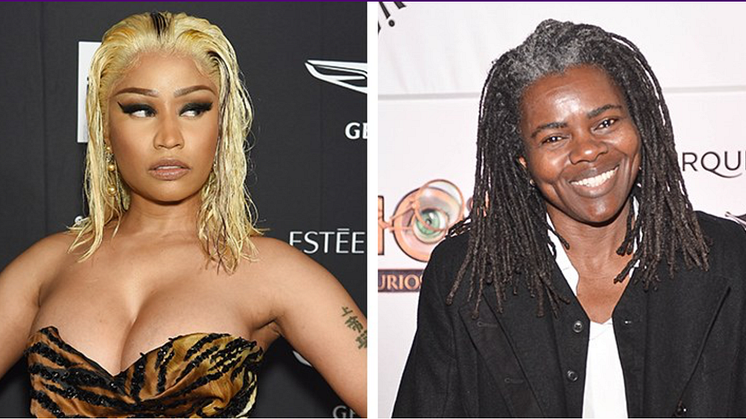
News -
“Sorry” is the most expensive song to play
Singer Nicki Minaj is being sued for copyright infringement by Tracy Chapman over a song with a rather apt title: “Sorry”.
Tracy Chapman, a singer-songwriter who is famous for her ‘80s hits Fast Car and Baby Can I Hold You, said Minaj sampled her song Baby Can I Hold You without permission.
In a complaint filed in U.S. District Court in California this week, Chapman calls for a jury trial, seeking monetary damages along with an order blocking Minaj from doing pretty much anything more with the song.
In Minaj’s Sorry, she starts off the song with the same lyrics, unlike other cases of copyright infringement in the industry where musicians are sued for inspiration, feeling or a groove.
“It’s a strong case for Tracy Chapman, because it’s a wholesale lift of the lyric as the centerpiece of Minaj’s track,” Bill Hochberg, who works with the Bob Marley estate, told Pitchfork about the case. “It’s stronger than the ‘Blurred Lines’ case where you have two songs that really don’t sound alike other than an inspirational vibe, whereas here it’s word-for-word lifting.”
Blurred Lines is a song by Pharrell Williams and Robin Thicke which led to them being sued by the family of former soul singer Marvin Gaye. The Gaye family won the case in 2015 and was awarded US$7.5 million, and the court of appeals upheld the verdict earlier this year.
Minaj had taken the song out of her latest album Queen, which was released in August. Which means Sorry has never been officially released, although a deejay Funkmaster Flex played the song on his show on the radio station Hot 97.
To rub salt on the wound, Minaj could end up having to pay money even if she will likely never profit from the song “Sorry”.
That is because if Minaj is found guilty of infringement of copyright she might be slapped with statutory damages, where the amount is defined by law rather than based on any actual harm caused. Statutory damages might go up to US$150,000.
Before Nicki Minaj released her album she had tweeted a request to Tracy Chapman to clear a sample for the album. In a later tweet, Minaj wrote, “Sis said no.” The tweet might be incriminating in the case as it is apparent that she recognized Chapman’s rejection of her request for permission.
This seems to be a case where the Creator, fighting against a much more popular star, seems to have the upper hand because of the wholesale lifting of part of her art, and the star’s tacit admission that the Creator declined permission for her music to be used.
